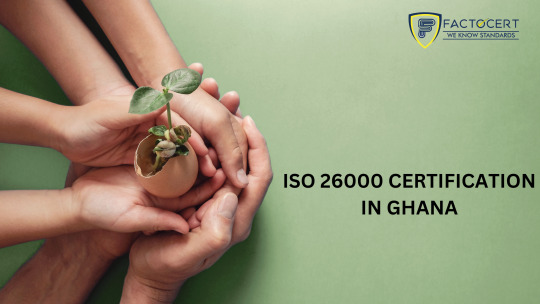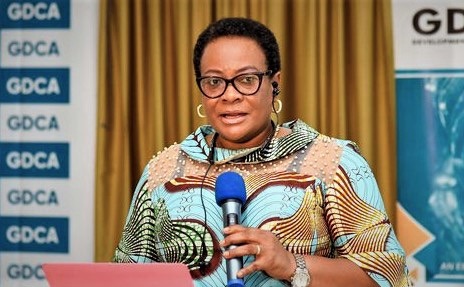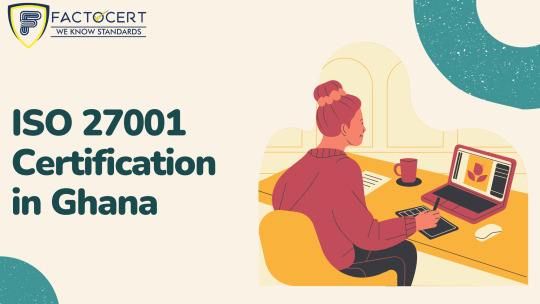#Ghana Integrity Initiative
Text
GII condemns ‘vote buying’ by some parliamentary aspirants at NDC primaries
The Ghana Integrity Initiative has condemned the distribution of money and other items by some parliamentary aspirants at the just-ended primaries of the opposition National Democratic Congress (NDC).
In a statement released on Monday, May 15, 2023, the GII said these incidents witnessed at the primaries marred the largely peaceful event.
“Vote buying and financial inducements distort the…

View On WordPress
0 notes
Photo





Edward Burtynsky’s photographs are visually arresting and often made more so by the need to look closer to discover what exactly is being captured. Some look like paintings at first glance before you realize there are roads or other man made structures contained within them.
From the Sundaram Tagore’s press release-
Since the early 1980s, Edward Burtynsky has been photographing industrial landscapes across the globe, documenting in remarkable detail the human imprint on the planet through terraforming, extraction, urbanization and deforestation. For African Studies, premiering in New York simultaneously at Sundaram Tagore Gallery and Howard Greenberg Gallery, he focused on Sub-Saharan Africa, traveling to Kenya, Nigeria, Ethiopia, Ghana, Senegal, South Africa, Botswana, Namibia, Madagascar and Tanzania between 2015 and 2020.
Burtynsky’s interest in Africa was sparked 20 years ago while he was working on his landmark 2004 photographic project China, which explores the country’s rapid globalization and the construction of the Three Gorges Dam. The series, and subsequent award-winning documentary film by Jennifer Baichwal, Manufactured Landscapes (2006), chronicle China’s transformation into the world’s leading manufacturer and depository for its waste. Burtynsky witnessed firsthand the immense environmental—and by extension, human—cost of development, and he predicted Africa would be the next, and perhaps the last, region to undergo major industrial expansion.
Presented in large-format photographs, African Studies conveys the fragility of the natural world, bringing together images of lush, undisturbed landscapes and environments irretrievably altered by industry. The series was largely photographed from aerial perspectives, a viewpoint that distills the continent’s diverse topography into graphic patterns and gradients of sumptuous color. The resulting effect seemingly transforms the marks of human infrastructure into painterly abstract compositions. In these images, as in all his work, Burtynsky skillfully integrates critical reporting with sublime visual aesthetics creating a harmonious balance between content and form.
“With this project I hope to continue raising awareness about the cost of growing our civilization without the necessary consideration for sustainable industrial practices and the dire need for implementing globally organized governmental initiatives and binding international legislations in order to protect present and future generations from what stands to be forever lost,” Burtynsky said.
Also on view in another section of the gallery are works from his series, Natural Order. The photographs were taken in Grey County, Ontario, during the lockdown in the spring of 2020.


This quote from Burtynsky was on the wall nearby in regards to the series-
"From the frigid sleep of winter to the fecund urgency of spring, these images are an affirmation of the complexity, wonder and resilience of the natural order in all things. I find myself gazing into an infinity of apparent chaos, but through that selective contemplation, an order emerges an enduring order that remains intact regardless of our own human fate."
This exhibition closes 4/1 at Sundaram Tagore Gallery and 4/22 at Howard Greenberg Gallery.
#edward burtynsky#photography#sundaram tagore#howard greenberg gallery#nyc art shows#chelsea art galleries#nature photography#africa photography#documentary photography#art#art shows#africa#canada#environmental photography
4 notes
·
View notes
Text
exploring architecture through the lens: a reflection on my participation in a photography workshop with jean molitor
as a photographer passionate about architecture, i was thrilled to receive an invitation from my friend and instructor, alex ndibwami, to participate in a photography workshop led by the legendary architectural photographer, jean molitor. the workshop was held at the university of rwanda's school of architecture and environmental design, and it brought together rwandan architecture students, instructors, and their colleagues from around the world, for a day of exploring and documenting the city's heritage buildings.
the objective of the workshop was to share tips and tricks in architectural photography (being mindful of light, lens choice, and angles) and to encourage the students to be aware of the storytelling aspects of capturing the buildings and structures they create around them. as an integral component of the extensive DOCOMOMO international initiative, the school of architecture and environmental design is vigorously advocating for the establishment of a rwanda chapter, as part of the critically important shared heritage africa program overseen by DOCOMOMO germany.
through the day’s exercise, i had the privilege of facilitating the conversation between the students and their mentors as we explored key heritage buildings in kigali, including the cloister of bernadine sisters (built in 1930) and sainte-famille church (built in 1914) to name a few. this experience was a reminder of the significance of documenting heritage structures, especially with the fast-paced modernization and urbanization that many african cities are experiencing.
in today's rapidly changing world, the need to document and preserve our built environments is more critical than ever. through collaborations such as DOCOMOMO international and shared heritage africa, young architects and creatives have a unique opportunity to showcase the beauty and significance of modernist buildings and other architectural wonders built in the mid-twentieth century in various African countries. The photo exhibition hosted at the gallery of the school of art and industrial design (kyambogo university, uganda) displaying modernist buildings from ghana, nigeria, rwanda, and uganda is an excellent example of the potential for such collaborations.
the impact of the spaces we inhabit on our lives is profound, and preserving them for future generations is of utmost importance. was reminded of the work of other talented photographers such as mutua matheka of kenya and timothy latim of uganda, who are advancing the conversation in this field.
in conclusion, as storytellers, it's crucial that we collaborate with architects and creatives to document and preserve our changing built environment. let's join hands to tell the stories of the architectural wonders around us, ensuring that they inspire and inform future generations as they design and shape the world.
suggested links:
https://architectuul.tumblr.com/tagged/SharedHeritageAfrica
https://sha.architectuul.com/
https://twitter.com/omar_degan/
https://www.instagram.com/starp/
#Photography#Storytelling#Architecture#Architectural Photography#African Architecture#African Photography#Philippe Nyirimihigo#Illume Creative Studio
4 notes
·
View notes
Text
Why is ISO 26000 Certification beneficial to your business in Ghana?

ISO 26000 Certification in Ghana
ISO 26000 Certification in Ghana Maintaining a competitive side in business in an unexpectedly globalizing economy often requires more significant than simply economic savvy; it requires a commitment to sustainable and socially responsible practices. For groups in Ghana, adhering to international requirements, which include ISO 26000 Certification in Ghana, can drastically beautify their recognition, operational performance, and average effect on society. This weblog post explores the advantages of ISO 26000 Certification in Ghana and how it may transform your commercial enterprise landscape ISO 26000 Certification in Ghana.
What ISO 26000 Certification Means for Ghana
ISO 26000 Certification in Ghana guides social obligation, allowing businesses to operate in approaches that recognize ethical values, human beings, groups, and the environment. Compared to other ISO requirements, ISO 26000 Certification in Ghana is only sometimes for certification purposes. Still, it serves as a guideline to assist groups and organizations in understanding social responsibility and what they must do to attain it. However, the period “ISO 26000 Certification in Ghana” is usually used to denote groups that align their operations with the ideas outlined in ISO 26000 Certification in Ghana.
The ISO 26000 Certification in Ghana Enhances Brand Reputation and Trust
One of the primary blessings of adopting ISO 26000 Certification in Ghana is significantly enhancing your corporation’s brand popularity. Integrating social responsibility into your business model shows clients, traders, and partners that your employer is committed to ethical practices beyond earnings-making. In a client market increasingly leaning towards moral and sustainable products, showcasing your ISO 26000 Certification in Ghana alignment could make your emblem stand out, potentially growing customer loyalty and trust.
Attracting Investments and Funding Opportunities through ISO 26000 Certification
Investors progressively prioritize sustainability and corporate social duty (CSR) in their investment decisions. Companies in Ghana that demonstrate a dedication to the concepts of ISO 26000 Certification in Ghana can entice a broader range of buyers and gain access to inexperienced financing possibilities. Financial establishments and investors are more likely to fund socially accountable and environmentally sustainable tasks, as these initiatives offer decreased dangers and higher compliance with emerging international norms.
Strengthening Community Relations
ISO 26000 Certification in Ghana encourages corporations to interact with local communities, positively affecting the effect. For organizations in Ghana, using these suggestions can cause a more vital network of family members and improved social license to perform. By contributing to community development through tasks that address neighbourhood desires and issues, groups satisfy their social obligations and construct a basis of goodwill and assistance that may be important for the duration of expansions, relocations, or operational challenges.
Improving Employee Satisfaction and Retention
The concepts of ISO 26000 Certification in Ghana cover honest working practices and labour policies. Businesses that adopt these principles often see advanced operating conditions, which may lead to better employee satisfaction and retention rates. When employees trust that they’re working for an agency that values social responsibility and moral practices, their engagement and loyalty may grow. This applies in Ghana, where skilled labour retention is crucial for maintaining operational effectiveness and competitiveness.
Driving Innovation and Competitiveness
Adopting ISO 26000 Certification in Ghana can force innovation within your organization. When companies commit to sustainable practices, they regularly want to reconsider approaches and merchandise, which could improve efficiency, aid use, or even new products and services. In Ghana, where many sectors are ripe for innovation, integrating social obligation can play an aggressive role, distinguishing your commercial enterprise from competitors in terms of what you produce and how you make it.
Mitigating Risks
Alignment with ISO 26000 Certification in Ghana helps businesses identify and mitigate diverse operational risks, mainly the ones associated with environmental, social, and governance (ESG) elements. By proactively addressing capability problems related to social responsibility, organizations can avoid criminal pitfalls, boycotts, and other reputational damages that might stand up from unethical commercial enterprise practices. This threat mitigation is increasingly vital in Ghana, where both neighbourhood and worldwide scrutiny of commercial enterprise practices is rising.
Conclusion
For organizations in Ghana, integrating ISO 26000 Certification in Ghana ideas is only sometimes pretty much adhering to a worldwide general; it’s shaping the business enterprise’s future in a sustainable and socially responsible manner. While ISO 26000 Certification in Ghana isn’t always a certification within the conventional experience, its adoption indicates a commitment to operating based on ethical behaviour and network consideration.
This commitment can translate into numerous tangible advantages for corporations, from improved brand recognition and investor attraction to stepped-forward employee morale and innovation. As Ghana continues to conform economically and socially, the principles embodied in ISO 26000 Certification in Ghana function as critical guidelines for businesses aiming to succeed globally, even contributing to societal development. ISO 26000 Certification in Nigeria
Why Factocert for ISO 26000 Certification in Ghana
We provide the best ISO consultants who are knowledgeable and provide the best solution. For information on how to get ISO certification, kindly reach out to us at [email protected]. ISO certification consultants work according to ISO standards and help organizations implement ISO 26000 Certification in Ghana with proper documentation.
For more information, visit ISO 26000 Certification in Ghana.
Related Links:
· ISO 21001 Certification in Ghana
· ISO 37001 Certification in Ghana
· ISO 22301 Certification in Ghana
· ISO 27701 Certification in Ghana
· ISO 26000 Certification in Ghana
· ISO 20000–1 Certification in Ghana
· ISO 50001 Certification in Ghana
RELATED ARTICLE
ISO 26000 Consultants in Ghana
0 notes
Text
Cecilia Dapaah: EOCO, OSP creating the impression some persons are untouchable – GII
The Executive Director of Ghana Integrity Initiative (GII), Mary Adda, has raised significant concerns regarding the conduct of the Economic and Organised Crime Office (EOCO) and the Office of the Special Prosecutor (OSP) in the investigation of the former sanitation minister, Cecilia Dapaah.
According to her, the current trajectory of the case involving the former sanitation…

View On WordPress
0 notes
Text
Ghana Represented for the First Time on The Awarding Jury for The Cannes Lions International Festival of Creativity
New Post has been published on https://plugzafrica.com/ghana-represented-for-the-first-time-on-the-awarding-jury-for-the-cannes-lions-international-festival-of-creativity/
Ghana Represented for the First Time on The Awarding Jury for The Cannes Lions International Festival of Creativity

The renowned Ghanaian Business Executive, Angela Kyerematen-Jimoh continues to make waves internationally as she becomes the first Ghanaian juror for the Cannes Lions International Festival of creativity.
Angela has been invited to join the Awarding Jury on the Creative Business Transformation category. Work across the globe will be judged, awarded, and celebrated during this prestigious international festival.
The Awarding Jury represents the global industry’s leading talent from diverse range of disciplines, from across 54 markets, and strictly by invitation.
Announcing this year’s festival, Marian Brannelly, the Global Director of Awards for LIONS, stated: “It’s exciting to see representation from four new markets this year – Armenia, Ghana, Pakistan and Panama – as well as the highest-ever representation from the Middle East and Africa. Our Jurors play a crucial role in upholding the integrity of the Lions, and we thank them for everything they bring to the important task ahead.”
Simon Cook, CEO of LIONS, added: “We’re delighted to have a balance and breadth of expertise and global representation across our Juries. The Awarding Juries represent the global industry’s leading talent from a diverse range of disciplines, and we welcome the unique perspectives they bring. We thank them for their time, dedication and care in setting the global creative benchmark for our industry.”
Angela Kyerematen-Jimoh stated: “I can’t wait to bring my voice to the jury room to assess the groundbreaking creativity that will set the creative benchmark for another year. I am particularly thrilled that Ghana has a seat at the table for this world class festival and looking forward to making my country proud.”
Ms. Kyerematen-Jimoh is currently the National Digital Transformation Lead for Africa, at Microsoft where she works with governments and corporate institutions on their digital transformation initiatives. Prior to joining Microsoft, she spent a decade at IBM and ended her career with IBM as the CEO of IBM North East and West Africa (NEWA) overseeing IBM’s business in 35 countries including Nigeria, Ghana, Morocco, Kenya and Senegal. She is a board member of Global Legal Entity Identifier Foundation (GLEIF), headquartered in Zurich, and Bank of Ghana. Angela is an alumna of Harvard Business School.
By: Prince Akpah
0 notes
Text
Floating Power Plant Market: Trend Analysis 2023-2030

Floating power plants are a viable solution for powering island countries at lower costs than laying subsea cables. They can be installed on vessels like ships or barges, harnessing renewable energy sources such as solar, wind, hydro, and liquefied natural gas. The increasing demand for electricity in island countries drives their adoption, while complexities and environmental concerns with floating nuclear power plants may hinder the market growth. However, growing investments by Asian countries like India, Japan, Australia, and China in deploying plants with diverse energy sources offer ample opportunities for market players in the Asia-Pacific floating power plant market.
The global floating power plant market has seen growth in recent years, engaging the attention of various industries and stakeholders. In terms of revenue, the market is valued at $10,010.11 million in 2022 and is projected to grow at a CAGR of 10.74% throughout the forecast period.
Ship-based Floating Power Plants: Key Prospect
Floating power plants on ships are gaining popularity due to their flexibility, mobility, and ability to deliver electricity to remote or disaster-stricken areas. They are also ideal for coastal regions with limited land availability. Moreover, these power plants utilize renewable energy sources like solar and wind power, contributing to the global shift towards clean energy. Their modular design allows scalability and easy relocation to meet changing energy demands. Ship-based floating power plants have made significant technological advancements, improving their efficiency, scalability, and adaptability to marine environments.
One notable example is Karpowership, a Turkish company specializing in ship-based energy solutions. They have developed power barges installed on converted cargo ships, capable of generating electricity in various locations. These power plants have seen improvements in power generation, fuel efficiency, and environmental impact reduction thanks to more efficient gas turbine engines and advanced energy management systems. The modular systems Karpowership developed enable quick power capacity expansion by integrating additional barges.
Floating power plants on ships are now widely used for emergency power during natural disasters, temporary power generation in remote areas, and construction projects. They are particularly valuable in regions where fixed offshore wind farms are not feasible, allowing the utilization of wind energy in deeper waters. West Africa, specifically Ghana, is witnessing a resurgence in ship-based floating power plants to address energy challenges in remote coastal areas and islands. Karpowership has successfully deployed these plants in Ghana, providing reliable and flexible power generation, supporting the country's energy infrastructure, and driving economic growth.
The Green Initiative Effect
Ship-based floating power plants use renewable energy sources to generate electricity. These energy sources renew naturally within a human period, making them sustainable and environmentally friendly alternatives to traditional fossil fuel power generation. Using these plants based on renewable energy offers several advantages over land-based plants. They can be easily transported and relocated to areas with high energy demand or limited land availability.
In 2020, 38% of electricity in the European Union was generated from green energy, with wind energy being the most widely used renewable energy source. Hydropower and solar energy also contribute significantly to the renewable energy mix.
As per the Triton Market Research, the renewable segment is expected to grow with the fastest CAGR of 11.20% during the forecast period. This is attributed to the increasing global awareness and adoption of clean energy sources, government incentives, and advancements in renewable technologies.
OEMs: Powering the Future with Innovation
OEMs play a central role in floating power plants on ships because they provide the necessary expertise, technology, and equipment to design, build, and integrate power generation systems onto the ships. Working closely with project developers, they deliver customized solutions that meet specific requirements. By supplying high-quality components, OEMs ensure seamless integration of renewable energy and increase efficiency and reliability for the overall success of green energy initiatives.
Leading industry players like ABC Power System and XYZ Renewable Solutions drive the market forward with innovative technologies. The Hywind Scotland project, the first commercially viable floating wind farm, showcases the scalability and adaptability of power plants in deep offshore areas where fixed-bottom turbines are not feasible.
Conclusion
The floating power plant market has innovated sustainable solutions to meet the growing electricity demand. With the help of OEMs, these power plants can be designed, built, and integrated into ships to provide a reliable energy source. As the world moves towards cleaner and more sustainable energy sources, these plants have the potential to play a significant role in meeting our energy needs while reducing our carbon footprint. They offer a flexible and efficient way to generate electricity, making them an attractive option for the future.
FAQs:
Q1: What factors are restraining the market growth?
High upfront costs, complex regulatory frameworks, and challenges associated with grid integration & infrastructure development are key restraints to the market.
Q2: What segments are analyzed in the floating power plant market?
Segment by capacity (0 MW-5 MW, 5.1 MW-20 MW, 20.1 MW-100 MW, 100.1 MW-250 MW, and, above 250 MW) and source (non-renewable power source and renewable power source).
Q3: What geopraphies are studied in the market?
North America, Europe, Asia-Pacific, Latin America, and Middle East & Africa.
#Floating Power Plant Market#Power Plant Market#Floating Power Plant#triton market research#market research report
0 notes
Text
Accumulating ISO 27001 Certification in Ghana:
/ Uncategorized / By Factocert Mysore

Accumulating ISO 27001 Certification in Ghana:
ISO 27001 Certification in Ghana the present-day digital landscape, facts protection is paramount for corporations to a few degrees inside the globe. With cyber threats increasing, companies need to undertake robust information safety management systems (ISMS) to defend their touchy facts.
ISO 27001 certification in Ghana is a big, globally identified certification that offers a framework for installing, implementing, keeping, and constantly enhancing an ISMS. This manual provides an entire inspection of ISO 27001 certification in Ghana, outlining its importance, requirements, commission system, and benefits.
Apprehending ISO 27001 Certification in Ghana:
Definition and Purpose:
ISO 27001 certification in Ghana is a globally stated fashionable superior through the International Organization for Standardization (ISO) to assist agencies in controlling and guarding their facts belongings.
Importance in Ghana:
In Ghana, where virtual transformation is unexpectedly evolving, ISO 27001 certification in Ghana is critical for organizations trying to show their strength of mind in information protection, study regulatory necessities, and take advantage of aggressive difficulties inside the marketplace.
Requirements for ISO 27001 Certification:
Gap Analysis:
Conduct an extensive hollow assessment to discover current safety abilities, assess risks, and determine areas for development.
Establishing Policies and Procedures:
We are developing complete records of safety rules, techniques, and controls tailor-made to the financial business enterprise organization’s goals and dreams.
Risk Assessment and Treatment:
We identify and assess information protection dangers, implement suitable controls to mitigate or eliminate them, and document threat remedy plans.
Implementation of Controls:
Implementing technical, bodily, and administrative controls to guard data belongings, ensure confidentiality, integrity, and availability, and check ISO 27001 certification in Ghana necessities.
Training and Awareness:
They provide education and recognition programs to educate employees about their roles and responsibilities in maintaining statistics safety.
ISO 27001 certification in Ghana Implementation Process:
Project Initiation:
Appoint an assignment manager.
Establish a task company.
Define the undertaking scope, dreams, and timeline.
Obtain control-beneficial helpful resources and determination.
Documentation and Implementation:
Developing ISMS documentation, including guidelines, strategies, risk check-ins, manipulation of desires, and implementation of critical controls and measures.
Internal Auditing:
Internal audits are conducted to evaluate the effectiveness of ISMS implementation, understand non-conformities, and take corrective actions.
Management Review:
Review the ISM’s ordinary, fashionable, regular, and average overall performance and effectiveness of controls and address any problems or improvement opportunities ultimately identified by audits.
Certification Audit:
We are engaging a typical certification body to properly evaluate the ISMS within the ISO 27001 certification in Ghana and certification requirements.
Benefits of ISO 27001 Certification:
Enhanced Information Security:
Implementing ISO 27001 certification in Ghana requires corporations to strengthen their data protection posture, guard against data breaches, and reduce protection dangers.
Regulatory Compliance:
Achieving ISO 27001 certification demonstrates compliance with prison and regulatory requirements associated with records protection and privacy, as well as Ghana’s Data Protection Act, 2012 (Act 843).
Competitive Advantage:
ISO 27001 certification in Ghana complements agencies’ reputation, in stills client self-assurance, and gives them a competitive advantage in the marketplace. It is vital to extend opportunities and enterprise organizational growth.
Improved Efficiency and Effectiveness:
Adopting standardized strategies and controls streamlines operations, improves fundamental ordinary performance, and enhances joint industrial organization’s traditionally well-known performance.
Continual Improvement:
ISO 27001 certification in Ghana fosters a culture of chronic improvement by promoting regular monitoring, evaluation, and enhancement of the ISMS to conform to evolving safety threats and organizational modifications.
Conclusion:
ISO 27001 certification is strategic funding for corporations in Ghana seeking to protect their facts property, look at regulatory requirements, and benefit from aggressive detail in the modern-day digital panorama. By following the complete implementation tool and leveraging the blessings of certification, corporations can set up a robust information protection control framework, mitigate risks, and display their energy of will to protect touchy information.
For more information visit: ISO 27001 Certification in Ghana
Related links:
ISO 14001 Certification in Ghana
ISO 9001 Certification in Ghana
ISO 45001 Certification in Ghana
ISO 22000 Certification in Ghana
ISO 13485 Certification in Ghana
0 notes
Text
Exploring The Cultural Significance Of Cashew Paste
Among the many culinary customs throughout the world, cashew paste is a treasured gem that is highly valued for both its culinary prowess and deep cultural significance. Join us on a journey across continents and epochs, as we explore the diverse applications of cashew paste in both everyday cooking, as well as in special meals for celebrations and rituals. See the transformational impact of one common ingredient on a variety of civilizations, from the vibrant marketplaces of India to the lush greenery of West Africa and beyond. Cashew paste has become ingrained in cultural history through both contemporary culinary inventions and centuries-old traditions, creating a lasting impact on cuisines and rituals worldwide. Take part in this fascinating journey to discover the vivid flavours and untold tales of one of nature’s most versatile gifts – the cashew paste.
The roots of cashew paste
Before getting into other details, we must first examine the history and origins of cashew paste in order to fully appreciate its cultural importance. Having originated in the tropical areas of South America millennia ago, the cashew tree (Anacardium occidentale) has a long and illustrious history. The nutritional and therapeutic qualities of cashew nuts were initially recognized by indigenous populations in Brazil and the Caribbean, who used them in a variety of traditional medicines and culinary dishes. Through colonization and trading, the cashew tree slowly expanded its branches from its native origins to every corner of the world. During this period of expansion, Portuguese explorers were crucial in bringing cashew trees to areas like Southeast Asia, Africa, and India. Over time, cashew nuts became an integral part of the culinary landscape in these regions, giving rise to innovative dishes and culinary traditions.
Cultural significance in rituals and celebrations
Cashew paste is considered sacred in many cultures, and is frequently utilized in ceremonial and religious rites.
In India, cashew paste is used in Hindu ceremonies to make sweets like peda and kaju katli, as a sign of purity, prosperity, and auspicious beginnings, which are also often exchanged as tokens of goodwill and blessings during festivals like Diwali and Navratri.
In West African countries like Ghana and Nigeria, the cashew paste is an integral part of traditional rituals and weddings, representing fertility, abundance, and marital bliss. It is also believed to have magical qualities that fend off bad spirits, which is why it is utilized in healing and spiritual rites.
In Brazil, where cashew trees are native, cashew paste holds cultural importance in traditional ceremonies of indigenous communities, symbolizing abundance and prosperity.
In Thailand, cashew paste is used extensively in religious and temple rituals as a symbol of blessing and fertility, strengthening the spiritual bonds of the local population.
In Vietnam, especially in wedding ceremonies and ancestral rites, cashew paste is symbolic of familial connection and invokes blessings from the past, adding to the community’s rich cultural fabric.
In the Caribbean region, especially in countries like Trinidad and Tobago and Jamaica, cashew paste is an essential component of traditional foods offered during festivals and cultural events, embodying the spirit of community and heritage.
Cashew paste is still highly valued in so many cultures because of its ethereal properties and symbolic value in celebrations and ceremonies, which binds people together through common customs and beliefs.
Everyday cooking practices
Cashew paste is essential in everyday cooking across many cultures, even outside of ceremonial usage.
In India, the creamy texture and rich flavour of cashew paste are indispensable in kormas, curries, and biryanis; its versatility allowing it to enhance both savoury and sweet dishes, giving culinary creations more depth and complexity.
In West Africa, cashew paste is used to enhance anything from creamy sweets to robust soups. In Ivory Coast and Senegal, it is used to enhance the authenticity and flavour characteristics of traditional mafe, akara, and foutou.
In Middle Eastern countries, especially in Iran and Lebanon, cashew paste is an essential component of the cuisine, where it lends richness and complexity to meals like kebabs, kormas, and desserts.
In Southeast Asia, cashew paste adds a unique creamy texture and nutty undertone to curries, stir-fries, and noodle dishes in Thai and Indonesian cuisines.
In Mediterranean countries, cashew paste is a common addition to meals like hummus, dips, and spreads, providing a creamy substitute for conventional components like tahini.
Cashew paste is a versatile ingredient that enhances the flavour profile of meals in a variety of culinary traditions, reflecting its global appeal and culinary versatility.
The global impact of cashew paste
Cashew paste has become more and more popular in recent years, moving outside its original cultural settings and into foreign cuisines and culinary trends. Cashew paste, which has a creamy texture and nutty flavour that appeals to a wide variety of palates, has emerged as a flexible substitute for dairy products with the advent of plant-based and dairy-free diets. Cashew paste is a popular ingredient for creamy sauces, dips, and desserts in vegan cuisine because of its reputation for simulating the texture and richness of dairy foods. When it comes to using cashew paste in plant-based dishes, the options are unlimited, ranging from cashew-based cheesecakes and ice creams to vegan macaroni and cheese.
From its origins in South America to its global prevalence, cashew paste symbolizes the enduring power of food to bring people together and conserve cultural legacy. Cashew paste adds deep cultural depth and nutritional value to our daily meals as well as religious rites and celebrations. So, take a moment to appreciate the centuries-old customs and cultural legacies that a dish filled with the creamy richness of cashew paste symbolizes. And, when you want to add this paste to your own meals too, you can conveniently buy cashew paste online in India at Migo, a delicious, luscious, and perfect paste to elevate your culinary creations, connecting you with its rich cultural heritage with every bite.
#Migo#CashewPaste#MigoCashewPaste#CashewPasteRecipe#CashewButter#BuyCashewPasteOnline#KajuPaste#NutPower#CholestrolFree#ZeroGuilt
0 notes
Text
T. Edward Kofi: Leading Change Through African Christians Fellowship International
Introduction
At the helm of African Christians Fellowship International (ACFI) stands T. Edward Kofi, a beacon of hope and catalyst for change. His leadership has propelled ACFI to the forefront of community development efforts across Africa. In this blog, we delve into the life, vision, and impact of T. Edward Kofi, shedding light on his remarkable journey as the Executive Director of ACFI.
Early Life and Inspiration
Born and raised in Ghana, T. Edward Kofi's upbringing was steeped in values of compassion, integrity, and service to others. It was this foundation that laid the groundwork for his future endeavors in humanitarian work. Inspired by the challenges facing his community, Kofi embarked on a path driven by a deep-rooted desire to make a positive difference in the lives of others.
Founding of ACFI
Fuelled by his unwavering commitment to social justice and guided by his faith, T. Edward Kofi founded ACFI with a clear vision: to empower African communities and foster sustainable development. Under his leadership, ACFI has emerged as a leading force in tackling issues ranging from education and healthcare to economic empowerment and social inclusion. Kofi's visionary approach and tireless dedication have been instrumental in shaping ACFI's trajectory and impact.
Key Initiatives and Impact
ACFI's initiatives under T. Edward Kofi's leadership span a wide spectrum, addressing multifaceted challenges faced by African communities. From establishing schools and vocational training centers to implementing healthcare programs and sustainable agriculture projects, ACFI's impact is palpable and far-reaching. Through strategic partnerships and innovative solutions, Kofi and his team have successfully transformed countless lives, leaving an indelible mark on the communities they serve.
Philosophy and Values
Central to ACFI's ethos are principles of compassion, dignity, and empowerment. T. Edward Kofi advocates for a participatory approach, where communities are active participants in the development process. By fostering local leadership and embracing cultural diversity, ACFI ensures that its interventions are contextually relevant and sustainable, fostering resilience and self-reliance among beneficiaries.
Recognition and Challenges
The transformative work of T. Edward Kofi and ACFI has not gone unnoticed, earning recognition and accolades from across the globe. However, navigating the complex landscape of humanitarian aid presents its share of challenges, from funding constraints to logistical hurdles. Yet, through perseverance and innovation, Kofi and his team continue to overcome obstacles, steadfast in their commitment to creating a brighter future for all.
Future Outlook
Looking ahead, T. Edward Kofi remains unwavering in his dedication to expanding ACFI's reach and impact. With ambitious plans for scaling existing programs and forging new partnerships, he envisions a future where every African community has access to the resources and opportunities needed to thrive. Kofi's visionary leadership and steadfast determination serve as guiding lights, inspiring hope and catalyzing positive change across the continent.
Conclusion
In T. Edward Kofi, we find not just a leader, but a visionary and champion of social justice. Through his tireless efforts at ACFI, Kofi embodies the transformative power of compassion and collective action. As ACFI continues to pave the way for sustainable development and inclusive growth, the legacy of T. Edward Kofi stands as a testament to the enduring impact of human kindness and solidarity.
0 notes
Text
Unraveling the Veil: Exposing Alleged Corruption in Ghana
In a country where transparency and ethical standards should be paramount, recent events have shone a light on murky dealings that threaten to tarnish the reputation of both local and international entities. The unfolding saga surrounding the Agyapa Royalties deal has cast a shadow over the operations of White and Case, a prominent UK-based law firm. What emerges from this narrative is not just a tale of legal transactions, but a web of relationships, conflicts of interest, and questions of integrity.
The coming days, will be interesting for a prominent UK-based law firm; White and Case, as the friendship between one of its partners and a cousin of Ghana’s President Akufo-Addo, is giving the international firm, bad publicity and an apparel of corruption, following the controversial Agyapa Royalties deal.
Joshua Siaw, a partner in White & Case, who doubles as the Director of the firm’s Africa Practice, has variously been mentioned as a good friend of Gabby Asare-Otchere Darko and through whom, many Ghana government legal deals, have landed in the conference room of the UK firm, mostly without competitive bidding and without value for money analysis.
Indeed, many have asked why, a state institution bypassed competent law firms here in Ghana, to handover legal jobs to foreigners; White and Case, who might be found wanting in the appreciation and application of Ghanaian laws.
But behind this arrangement, is a grimy conflict of interest situation with these legal jobs ending up on the desk of Africa Legal Associates, a law firm owned by Gabby Asare Otchere-Darko, and his wife, Lawyer Nana Adwoa Hackman.
The Herald, has picked up signals that, Joshua Siaw, is beginning to feel uncomfortable about the negative publicity and claims of corruption White & Case is getting associated with in the Ghanaian media.
Sources close to Mr Siaw, who The Herald spoke to, said he was afraid that sooner than later, the UK authorities might be breathing heavily on the respected law firm per that countries highly ethical standards governing the legal profession and practice.
Joshua Siaw, who has been knighted by the Queen of England, as a member of the Most Excellent Order of the British Empire (MBE), is agitated there could be severe sanctions.
His friend, Gabby Asare Otchere-Darko, has on various media platforms, boasted about his Accra-based law firm’s partnership with White & Case, revealing how the two law firms, have been working for lots of state institutions in Ghana.
He told The Herald in his office on July 27, 2020, that his Africa Legal Associates’ involvement in Agyapa Royalties, which had just changed its name from Asaase Royalties Limited, is as a result of the partnership with White and Case.
He was, however, angry when questioned about how his partners won the legal job and subcontracted to his law firm.
In the presence of one of his partners; Nii Odotei, Gabby Asare-Otchere Darko, later claimed, his firm had been paid less than US$100,000, for the time his law firm and Ace Ankomah’s law firm, Bentsi-Enchill, Letsa & Ankomah, had put into the transaction, including long hours of meetings and telephone calls.
Gabby, told The Herald, that the two Ghanaian law firms, were subcontracted by the UK-based law firm; White & Case, in the transaction, leading to the creation of the offshore company, Asaase Royalties Limited, which was later changed to Agyapa, following initial concerns from his law firm about the clash in name with his radio station; Asaase Radio based in Accra.
The name Asaase, was also prominent at the Registrar Generals’ department with companies into mining in the database. This he said, might conflict, hence the name change was suggested.
Parliament on August 14, approved the controversial Agyapa Mineral Royalty Limited agreement with the government of Ghana, despite a walkout by the Minority. Agyapa Royalties is to receive and manage Ghana’s equity interests in mining companies, as well as royalties per the Minerals Income Investment Fund Act 2018, but the issue lacks transparency, suffered procurement infractions and lacked values for money analysis.
Gabby Asare-Otchere Darko, a cousin of both President Akufo-Addo and Finance Minister, Ken Ofori-Atta, had publicly admitted working on the deal, as well as Ace Ankomah’s law firm, which was involved in the botched PDS transaction in which Electricity Company of Ghana (ECG) was to be privatized.
The Herald’s findings were that, aside White & Case partner, Joshua Siaw and his friendship with Mr Otchere-Darko, the White & Case in 2017, has advised the Ghana National Petroleum Corporation (GNPC) on a landmark liquefied natural gas (LNG) regasification project located in Tema, Ghana.
Coincidentally, Mr Asare-Otchere Darko’s wife, Nana Adwoa Hackman, is a board member of the GNPC and a co-partner of the Africa Legal Associates.
One Narinder Surae, who works with White & Case’s office in Johannesburg in South Africa, is part of Gabby’s law firm as an International Transactions’ Advisor.
Narinder boast of joining Africa Legal Associate in 2018 as International Transaction Advisor and has worked on major international transactions, including the multi-billion-dollar LNG transaction involving GNPC and, first Gazprom, and later, Rosneft, both of Russia.
The feeling on the ground is that he; Gabby, use his nexus in the Akufo-Addo government to get government legal deals awarded him to execute, using White & Case, as a clever front to drown any suspicion of favouritism.
Meanwhile, Veteran journalist, Kweku Baako, has said that Africa Legal Associates, owned by Gabby Asare Otchere-Darko, was not paid $2million for its work on the Agyapa Royalties Agreement.
“It is not true that Gabby’s firm got $2million from the deal. It is not true that his firm is a beneficiary of $2million. It’s not even up to $105,000. It is the main transaction advisor that paid Gabby. It is about $103,000. It is not $2million”.
Interestingly, Mr Baako, did not mention how much Ace Ankomah’s law firm got paid per the transaction.
Another major issue that has emanated from the brouhaha surrounding the deal is the role of Osafo-Maafo’s son, leaving assertions of nepotism and conflict of interest.
Baako, however, thinks that people are making a molehill out of a mountain.
Baako likened it to Ibrahim Mahama’s companies getting contracts during Mahama regime and Nana Konadu Agyemang Rawlings, under the Rawlings regime.
“We have to be consistent. We have to be coherent. I don’t expect everybody to agree with me and I expect people who disagree to it vehemently, if they like violently, disagree with me and criticize me”.
“The way we’re going around this politics, the so-called conflict of interest relative to political office holders over the period, I see a certain huge area of inconsistency and incoherence and I’m worried about that. This is not going to be the last time this will happen; you bet me!”
Meanwhile on the website of White & Case, is a press release confirming it advised the Ghana National Petroleum Corporation (GNPC) on a landmark liquefied natural gas (LNG) regasification project located in Tema, Ghana.
Under the structure of the deal, Gazprom Global LNG Limited, a global subsidiary of global energy giant PAO Gazprom (Gazprom), the world’s largest gas producer, will supply LNG and convert it into gas through a regasification terminal at Tema, before selling the converted natural gas to GNPC.
The project’s proposed technical configuration comprises a floating regasification barge, floating storage unit and a pipeline to an existing gas grid in Tema. The contract with Gazprom is expected to significantly increase energy security in Ghana, providing the country with approximately 250 mmcf/d of competitively-priced gas. The contract volumes will satisfy more than 1,000 MW of thermal generating capacity.
The White & Case team in London which advised on the transaction was led by partners Joshua Siaw, Mukund Dhar and Chris Czarnocki, with support from associates Henry Brendon and Ahyoung Koo.
The team worked closely with the GNPC legal team, led by senior in-house Legal Counsel, Adwoa Afriyie Wiafe and Legal Counsel, Louisa Amoako Quaicoe, and GNPC’s commercial team led by Chief Executive Officer, Dr Kofi Koduah Sarpong and Commercial General Manager, Joshua Dadzie, as well as Ghanaian law firm, Cromwell Gray LLP, led by managing partner, Kissi Agyebeng with support from associates Nana Aba Akwaaba Acquaah and Dennis Frimpong Agyebeng.
White & Case partner, Joshua Siaw, director of the Firm’s Africa Practice, who co-led the Firm’s deal team, said: “We are delighted to have been given this unique opportunity to work shoulder-to-shoulder with excellent Ghanaian lawyers at both GNPC and Cromwell Gray LLP to negotiate a comprehensive and long term deal that will supply power to millions of Ghanaian customers.”
Partner Mukund Dhar, who co-led the Firm’s deal team, said: “White & Case has worked with GNPC and Cromwell Gray LLP to produce a commercial structure that leverages Gazprom’s unique portfolio of assets and balance sheet to reduce the risk to GNPC, while at the same time facilitating Gazprom’s access to a key regional market. Once completed, this project will deliver Sub-Saharan Africa’s first floating regasification facility and position Ghana as a regional energy hub in Africa.”
White & Case is a leading global law firm with lawyers in 41 offices across 29 countries. The Firm has been a leading advisor on African matters for more than 40 years, and was the first international law firm to establish an on-the-ground presence in Johannesburg in 1995. White & Case has won multiple awards for global oil & gas work, including its work in Africa. Most recently, Chambers Global 2017 ranked White & Case Band 1 for Projects & Energy and LNG (globally), and Band 1 for Projects & Energy (Africa-wide). The statement concluded.
In the aftermath of these revelations, it's imperative that accountability is not just demanded, but enforced. The integrity of legal processes and the trust of the public hang in the balance. As investigations unfold and truths come to light, it's crucial that those responsible are held to account, and steps are taken to restore faith in the institutions entrusted with safeguarding the rule of law. The saga surrounding the Agyapa Royalties deal serves as a stark reminder of the importance of transparency, integrity, and ethical conduct in all aspects of governance and business dealings.
0 notes
Text
The Benefits of Using Teams for Video Conferencing

Video conferencing has become an essential tool for businesses and individuals alike. With the rise of remote work and global teams, the need for reliable and efficient communication solutions has never been greater. The poly video conference supplier ghana is a leading platform that offers a wide range of features to facilitate collaboration and communication, making it an ideal choice for video conferencing.
One of the key benefits of using Teams for video conferencing is its integration with other Microsoft 365 applications. This seamless integration allows users to easily transition from chatting and sharing files to initiating a video call with the click of a button. Whether you're working on a project in SharePoint or sending emails in Outlook, Teams makes it simple to connect face-to-face with colleagues and clients without having to switch between different platforms.
Another advantage of Teams is its versatility and scalability. Whether you're hosting a small team meeting or a company-wide webinar, Teams can accommodate meetings of all sizes. With features like screen sharing, chat, whiteboarding, and the ability to record meetings, poly video conference camera provides a comprehensive set of tools to enhance collaboration and productivity.
Security is a top priority when it comes to video conferencing, especially for businesses handling sensitive information. Teams prioritizes security and compliance by offering end-to-end encryption, multi-factor authentication, and compliance with international standards such as GDPR. This gives users peace of mind knowing that their conversations and data are protected from unauthorized access.
In conclusion, Microsoft Teams is a powerful platform for video conferencing that offers a seamless user experience, integration with other Microsoft 365 apps, scalability, and robust security features. Whether you're working remotely or collaborating with colleagues across the globe, Teams provides the tools you need to communicate effectively and work efficiently. Consider leveraging Teams for your next video conference and experience the benefits firsthand. For better understanding of this topic, please click here: https://www.encyclopedia.com/humanities/dictionaries-thesauruses-pictures-and-press-releases/pbx.
1 note
·
View note
Text
How significant are ISO 37001 Consultants in Ghana?

The Importance of ISO 37001 Certification in Ghana
ISO 37001 Certification in Ghana In today’s globalized business environment, ethical conduct and a commitment to anti-bribery practices are no longer desirable; they are essential. This is where ISO 37001 Certification in Ghana comes into play. This internationally recognized standard provides a framework for organizations to implement an Anti-Bribery Management System (ABMS), demonstrating a strong stance against corruption and fostering a culture of integrity.
What is ISO 37001 Certification in Ghana?
ISO 37001:2016 is the international standard that specifies the requirements for an effective ABMS. It outlines a systematic approach to preventing, detecting, and addressing organizational bribery. By achieving ISO 37001 certification in Ghana, businesses demonstrate their commitment to ethical conduct and compliance with anti-bribery legislation.
Why is ISO 37001 Certification Important in Ghana?
Ghana is a nation on the rise, attracting significant foreign investment. However, corruption remains a concern. ISO 37001 certification in Ghana signals to domestic and international stakeholders that an organization takes anti-bribery measures seriously. Here’s a closer look at the key benefits:
Enhanced Reputation and Credibility: Certification showcases an organization’s commitment to ethical practices, boosting its reputation and credibility among clients, partners, and investors. This can give Ghanaian businesses a competitive edge in the global marketplace.
Reduced Risk of Bribery: Implementing an ABMS as outlined by ISO 37001 helps identify and mitigate bribery risks within an organization. This proactive approach minimizes the likelihood of costly legal repercussions and reputational damage.
More robust Governance and Compliance: The structured framework of ISO 37001 ensures a systematic approach to anti-bribery compliance. This translates to more robust internal controls and better risk management practices.
Improved Client and Partner Relationships: Organizations build more robust and more trusting relationships with clients and partners by demonstrating a commitment to ethical conduct. This fosters long-term collaborations and enhances business prospects.
Increased Employee Morale and Retention: A culture of integrity and transparency creates a more positive work environment for employees. This can boost morale, improve productivity, and reduce employee turnover.
Competitive Advantage in Tenders: Many public and private tenders in Ghana increasingly prioritize companies with robust anti-bribery programs. ISO 37001 certification can give organizations a significant edge in securing these contracts.
Alignment with International Standards: For Ghanaian businesses operating internationally, ISO 37001 certification demonstrates adherence to a globally recognized standard. This facilitates smoother cross-border operations and partnerships.
The Process of Achieving ISO 37001 Certification in Ghana
The path to achieving ISO 37001 certification in Ghana involves several key steps:
Gap Analysis: An initial assessment is conducted to identify areas where an organization’s existing practices align with, or deviate from, the ISO 37001 standard.
Development of an ABMS: Based on the gap analysis, a comprehensive Anti-Bribery Management System is developed, encompassing policies, procedures, and controls to address bribery risks.
Implementation and Training: The ABMS is implemented throughout the organization, with relevant personnel training on anti-bribery procedures and their roles within the system.
Internal Audit: An internal audit is conducted to assess the effectiveness of the implemented ABMS.
Management Review: Senior management reviews the audit findings and makes necessary adjustments to the ABMS.
Certification Audit: An accredited certification body conducts a final audit to verify compliance with the ISO 37001 standard. Upon successful completion, the organization is awarded the ISO 37001 certification.
Getting Started with ISO 37001 Certification in Ghana
Several reputable certification bodies operate in Ghana, offering guidance and support throughout the ISO 37001 certification process. These organizations can help businesses understand the standard, conduct gap analyses, and recommend qualified consultants to assist with implementation.
Conclusion
In today’s competitive landscape, ethical conduct is not just a moral imperative; it’s a sound business strategy. ISO 37001 Certification in Ghana equips organizations with a powerful tool to combat bribery, build stakeholder trust, and achieve sustainable growth. By demonstrating a commitment to transparency and integrity, Ghanaian businesses can position themselves for success in the global marketplace.
Obtaining ISO 37001 Certification in Ghana
In conclusion, pursuing ISO 37001 certification in Ghana demonstrates an organization’s dedication to ethical business practices and anti-bribery efforts. The certification offers a comprehensive framework for mitigating bribery risks, enhancing brand reputation, and gaining a competitive edge in the global marketplace. By investing in this certification, organizations can build trust with stakeholders, ensure compliance with legal regulations, and foster a culture of integrity within their operations. ISO 37001 Certification in Nigeria
Why Factocert for ISO 37001 Certification in Ghana
We provide the best ISO consultants who are knowledgeable and provide the best solution. For information on how to get ISO certification, kindly reach out to us at [email protected]. ISO certification consultants work according to ISO standards and help organizations implement ISO certification with proper documentation.
For more information, visit ISO 37001 Certification in Ghana.
Related Links:
· ISO 21001 Certification in Ghana
· ISO 37001 Certification in Ghana
· ISO 22301 Certification in Ghana
· ISO 27701 Certification in Ghana
· ISO 26000 Certification in Ghana
· ISO 20000–1 Certification in Ghana
· ISO 50001 Certification in Ghana
RELATED ARTICLE
ISO 37001 Consultants in Ghana
0 notes
Text
FG promises to address challenges faced by Nigerians living in Ghana
The Nigerian government has given assurances to Nigerians living in Ghana of renewed engagement, dedication and commitment to addressing a plethora of challenges confronting them.
The assurances were given by the Chairman/CEO, Nigerians in Diaspora Commission, NIDCOM, Abike Dabiri-Erewa at a Townhall Meeting with Nigerians in Ghana on the sidelines of the African Diaspora Forum, DAF, Award 2024 in Accra, Ghana.
The NIDCOM boss while clarifying one of the many questions bordering on the recent relocation of the Commission to the Ministry of Foreign Affairs, explained that the agency is already part of the Ministry of Foreign Affairs, and its operations have been seamless.
She also suggested that the integration into the Ministry could strengthen the Commission and enhance engagement because it will now be an agency.
Other questions asked by participants included the very high residence permit fees charged in Ghana, influx of trafficked under-aged girls and boys, the status of Nigerian traders in Ghana, and the need to have a comprehensive list of accredited universities to prevent Nigerian students from being victims of unapproved universities.
They also commended the Minister of Interior, Olubunmi Tunji-Ojo for his innovations in passport application processes.
Dabiri-Erewa also provided insights into NiDCOM’s programmes such as the forthcoming launch of the Diaspora Housing Mortgage Scheme scheduled for April.
She emphasised that the Federal Government, through the Federal Mortgage Bank, will offer a N50 million mortgage to support home ownership in Nigeria for citizens residing abroad.
She said, “This initiative aims to empower Nigerians abroad to own homes in Nigeria, excluding Lagos and Abuja, at favourable rates.”
Dabiri-Erewa highlighted other NiDCOM initiatives such as the Diaspora Investment Summit, Diaspora Quarterly Lecture, National Diaspora Day, and National Diaspora Merit Award, as a platform to address the challenges encountered by Nigerians residing in Ghana.
In his remarks, Ambassador Usman Aliyu Bakori, Head of Mission, expressed appreciation to Dabiri-Erewa for prioritising Diaspora issues and for promptly addressing their concerns whenever called upon.
He also welcomed the housing scheme proposal, stating, “We value your insights. Nigerian citizens in Ghana abide by the law. While we face occasional challenges, we strive to manage them. We appeal to the Federal Government for financial support, especially considering the fluctuating exchange rates affecting our operations in Ghana.
.
Read the full article
0 notes
Text
Nigeria and Morocco Accelerate $25 Billion Gas Pipeline Dreams

In a significant stride towards realizing the $25 billion Nigeria-Morocco gas pipeline project, the Federal Government has heightened discussions with the Kingdom of Morocco.
The talks, held on Wednesday, brought together the Minister of State for Petroleum Resources (Gas), Ekperikpe Ekpo, and the Moroccan Minister of Energy Transition and Sustainable Development, Ms. Leila Benali. Leading the discussions were NNPC Limited’s Executive Vice President, Gas, Power & New Energy, Mr. Olalekan Ogunleye, and the Director General of the Morocco National Office of Hydrocarbons and Mines (ONHYM), Mme Amina Benkhadra.
The focal point of the discussions was to expedite the Final Investment Decision (FID) process for the Nigeria-Morocco Gas Pipeline Project, aligning with the Memoranda of Understanding (MoUs) signed between the two nations in Abuja in 2022. The project holds strategic importance for both countries and the broader African continent, aiming to combat energy poverty in Africa. The Cooperation Agreement for the 48” x 5,300Km pipeline, stretching from Nigeria to Dhakia (Morocco) and 1,700km from Dhakia to Northern Morocco, was initially signed in 2017. It boasts a capacity of 30 billion cubic meters (bcm) per year, equivalent to 3.0 billion standard cubic feet of gas per day.
This expansive pipeline will traverse through the Republic of Benin, Togo, Ghana, Cote d’Ivoire, Liberia, Sierra Leone, Guinea, Guinea-Bissau, Gambia, Senegal, Mauritania, and conclude in Morocco, with a spur extending to Spain. Due to the project's international nature, the ECOWAS Commission plays a crucial role in facilitating inter-governmental treaties, hosting government agreements, establishing the Pipeline Higher Authority, and ensuring alignment with AU, UN, and other relevant international bodies.
The Nigeria-Morocco gas pipeline project holds multifaceted significance. Firstly, it is poised to drive the monetization of Nigeria’s abundant gas resources. Additionally, it aims to maintain NNPC Ltd.’s leadership in the energy sector across Africa and foster economic and regional cooperation among African nations. The discussions between Nigeria and Morocco underscore the commitment to advancing this transformative project that not only fortifies bilateral relations but also holds the potential to reshape the energy landscape in the region.
The meeting between the ministers and executives of both countries is a testament to the collaborative efforts needed to overcome the complexities associated with such an extensive and vital infrastructure project. As both nations work towards expediting the Final Investment Decision, the pipeline project remains a beacon of regional integration, economic development, and sustainable energy solutions for the African continent. The achievements and progress in these discussions mark a significant step towards realizing the vast potential of the Nigeria-Morocco gas pipeline and the collective benefits it holds for the participating nations.
Read the full article
0 notes
Text
Bronx's Finest Accra Cuisine at African Dish Out
Introduction
In the heart of the Accra Restaurant - Bronx it invites food enthusiasts on a journey through the rich flavors of Ghanaian cuisine. Accra Restaurant, with its roots deeply embedded in cultural authenticity, has become a beacon of diversity in the vibrant borough.
Accra Restaurant's History
Accra Restaurant emerged from a passion for introducing New Yorkers to the authentic tastes of Ghana. What started as a modest eatery has grown into a culinary haven, celebrated for its dedication to preserving and promoting Ghanaian culinary traditions.

The Unique Cuisine
Step inside Accra Restaurant, and you're transported to the vibrant streets of Accra. The menu boasts a fusion of traditional Ghanaian dishes and contemporary culinary twists. From the aromatic Jollof rice to the delectable Kelewele, each dish narrates a story of Ghana's culinary heritage.
Ambiance and Decor
Beyond the tantalizing aromas, Accra Restaurant's ambiance is a key player in the dining experience. The decor pays homage to Ghanaian art and design, creating a warm and inviting atmosphere that resonates with both locals and visitors.
Community Engagement
Accra Restaurant goes beyond being a culinary haven; it's a community hub. Actively participating in local events and initiatives, the restaurant has become an integral part of the Bronx's cultural landscape, fostering a sense of unity among its diverse patrons.
Accolades and Recognition
Accra Restaurant has earned its stripes in the culinary scene, receiving accolades for its commitment to authenticity and excellence. Positive reviews and heartfelt testimonials from satisfied customers underscore its impact on the taste buds and hearts of those who dine here.

Chef Spotlight
Meet [Chef's Name], the culinary genius behind Accra Restaurant's success. With a passion for introducing New Yorkers to the nuances of Ghanaian flavors, Chef [Name] infuses creativity and skill into each dish, turning a meal into a cultural experience.
Events and Specials
Accra Restaurant isn't just a place to eat; it's a venue for events and celebrations. Regularly hosting themed nights and offering special promotions, the restaurant keeps its offerings fresh and exciting, enticing both regulars and newcomers.
Accra Restaurant's Impact
Beyond its culinary offerings, Accra Restaurant has made a lasting impact on the Bronx's food scene. Its commitment to diversity and cultural exchange has paved the way for a more inclusive and dynamic gastronomic landscape.
Online Presence and Reviews
In the digital age, Accra Restaurant leverages social media to connect with its audience. With a strong online presence, the restaurant engages with patrons, shares behind-the-scenes glimpses, and listens to customer feedback, ensuring a dynamic and responsive dining experience.
Accra Restaurant's Menu
The menu at Accra Restaurant is a symphony of flavors. From the fiery Waakye to the succulent Grilled Tilapia, each dish is a testament to the culinary mastery and dedication to authenticity that defines this establishment.
Behind the Scenes
While the dining area buzzes with activity, behind the scenes, a dedicated team ensures that each dish meets the highest standards. Accra Restaurant is not just about taste; it's about a commitment to quality and the satisfaction of its discerning patrons.
Future Plans
Accra Restaurant has its eyes set on the future. Whether through expansion or innovative culinary ventures, the restaurant remains dedicated to evolving while staying true to its roots, promising exciting developments for its loyal following.

Customer Loyalty Programs
To express gratitude to its regular patrons, Accra Restaurant offers enticing loyalty programs. From discounts to exclusive events, the restaurant ensures that its loyal customers are appreciated and rewarded for their continued support.
Conclusion
Accra Restaurant stands as a testament to the richness of cultural diversity in the Bronx. Through its cuisine, ambiance, and community engagement, it has not just carved a niche but created a cultural haven for food enthusiasts seeking an authentic and immersive experience.
1 note
·
View note